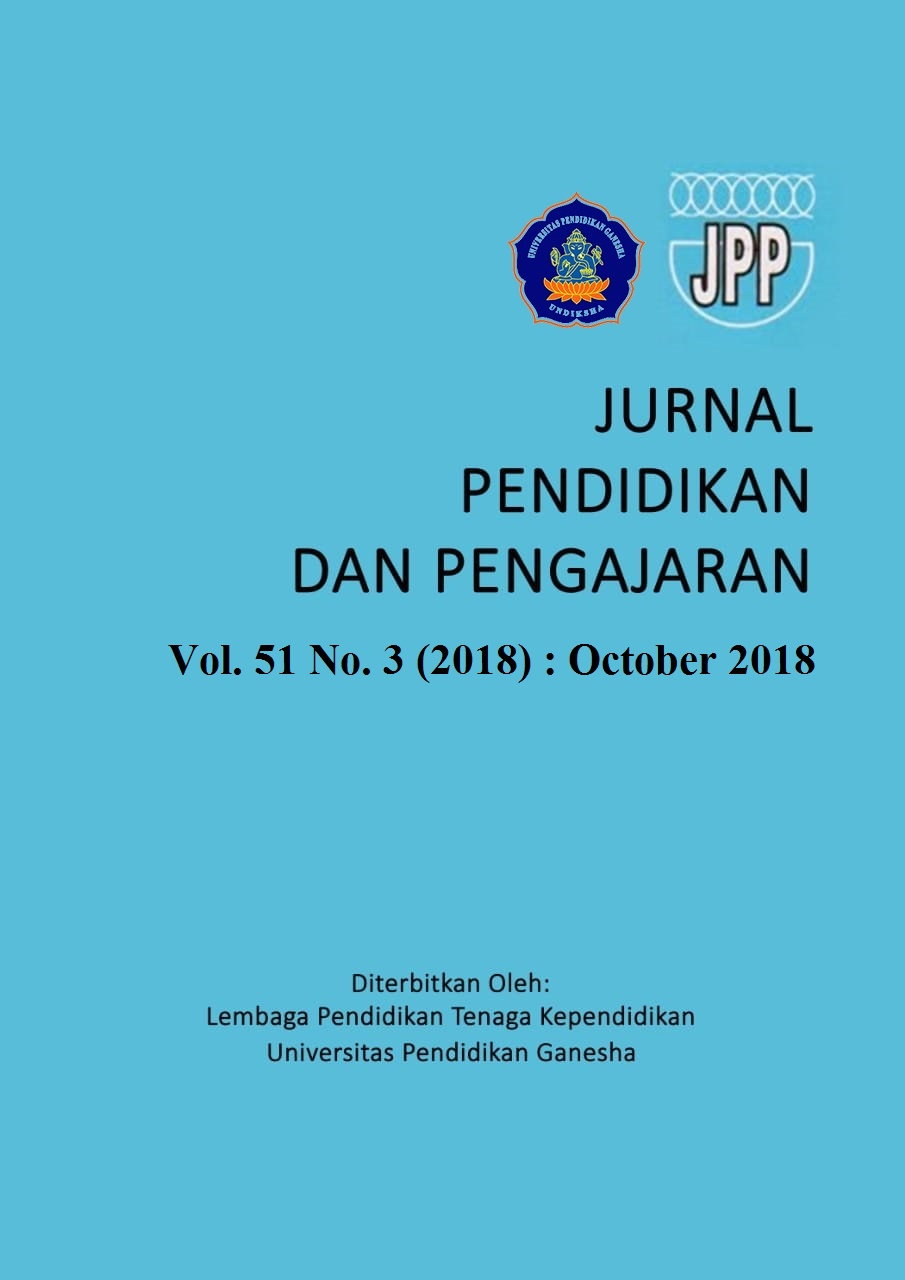Implementation of cooperative learning model type Jigsaw in social science to increase students’ learning outcome
DOI:
https://doi.org/10.23887/jpp.v51i3.15926Keywords:
cooperative learning, Jigsaw, learning outcomeAbstract
This study that aimed at improving learning outcomes in social science using cooperative learning model type Jigsaw in social science. The model was implemented in a primary school. This learning model was developed into 2013 curriculum-based learning. We conducted the study into cycle 1 and cycle 2, each consisted of 3 meetings. The research subjects were 4th grade students. The research design was arranged based on planning, action, and reflection. Results show that there is an increase in the number of students passing the minimum requirement. Therefore, Jigsaw can improve students’ learning outcomes.Downloads
Published
2018-10-29
How to Cite
Permata, D., Slameto, S., & Radia, E. H. (2018). Implementation of cooperative learning model type Jigsaw in social science to increase students’ learning outcome. Jurnal Pendidikan Dan Pengajaran, 51(3), 138–144. https://doi.org/10.23887/jpp.v51i3.15926
Issue
Section
Articles
License
Authors who publish with Jurnal Pendidikan dan Pengajaran agree to the following terms:- Authors retain copyright and grant the journal the right of first publication with the work simultaneously licensed under a Creative Commons Attribution License (CC BY-SA 4.0) that allows others to share the work with an acknowledgment of the work's authorship and initial publication in this journal
- Authors are able to enter into separate, additional contractual arrangements for the non-exclusive distribution of the journal's published version of the work (e.g., post it to an institutional repository or publish it in a book), with an acknowledgment of its initial publication in this journal.
- Authors are permitted and encouraged to post their work online (e.g., in institutional repositories or on their website) prior to and during the submission process, as it can lead to productive exchanges, as well as earlier and greater citation of published work. (See The Effect of Open Access)





